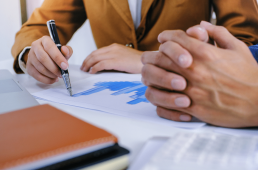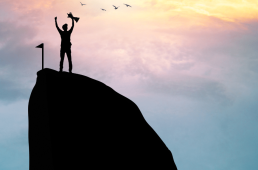“It’s only when the depression comes that you can see who’s swimming naked,” Warren Buffett said a few years ago when asked to address the global financial crisis.
We thought we were omnipotent, resistant to all threats, that the world belonged to us, after all, we were young, and then the coronavirus came along and proved to all of us that a small, invisible bacterium can paralyze an entire world.
What hasn’t been said about the huge crisis, about the unprecedented unemployment rates, the amount of loans taken, mortgage payments deferred, interest rates soared, stock markets that collapsed, and about the families, yes, the families, who in an instant found themselves facing the edge of the abyss of economic collapse, no less. Yes, the mess is celebrating, but despite all this, we must put everything aside for a moment and think about what lesson is important to learn from the whole thing.
The ramifications of the coronavirus crisis are going to accompany the Israeli economy for a very long time to come, so how do we find a way to recover, how do we prepare for the day after?
Life without debt
I’ve said it here before and I’ll say it again, living in debt is a bad thing that puts us in double danger, certainly when we find ourselves in an unexpected period, in such a situation not only can we not pay the debt, but it also grows at a monstrous rate – one that will be very difficult for us to control even after the crisis is over. Debt is the first thing to take care of in order to ensure financial stability for yourself.
Security Fund
This is not a fund for the purpose of investment and profits, but as its name is – one that will provide you with security for unexpected days just like these. With the money in the fund, we should not be tempted to touch on routine days, so it is recommended to close it. Try to choose a very solid financial product, one over which you have full control and from which you can withdraw the funds immediately when necessary (many were hurt by the decline in profits in funds during the pandemic only due to bureaucratic delays by the financial institutions). The recommendation is that the fund contain an amount equal to about 6 months of your average monthly expenses, so you can be prepared in advance with money available for any scenario and avoid the ill-advised situation of going into overdraft and financial collapse.
Prefer jobs where you can work remotely
If there is anything that the COVID-19 crisis has taught many employers, it is the ability of their employees to conduct themselves just as well from home as well, and therefore it seems that the day is not far off when many will embrace remote work. Working from home has many advantages: saving businesses expenses on renting offices, saving employees time due to not having to stand in traffic jams, and remote work allows us to live anywhere we want and not necessarily among expensive central cities. In order to better prepare for unexpected scenarios, it is recommended that anyone who does not hold a position that cannot be worked remotely consider a change and have one that will give you more stability regardless of location.
Diversification in sources of income
The vast majority of us have only one job. Diversity is security, and when the main source of income disappears, the existence of additional sources of income makes us more stable. Have at least one source of income and one income-generating investment.
balance
If there’s anything this period has really helped us understand it’s that we don’t need everything we buy, life without Amazon deliveries and wonder malls still goes on. The days of lockdown made us return to simplicity, to discover that spending time in nature with family can be much nicer than wandering empty among shop windows. Even the day after, when the glitzy shopping centers reopen, we must remember the insight that our happiness is not affected by our belongings and adopt better habits of wise consumerism.
Author Viktor Frankl wrote in his book Man’s Search for Meaning that “none of us has chosen the current situation, but choosing how to behave in any situation is always our choice.” Indeed, we have been given a golden opportunity here to recalculate our route, to understand that the impossible is possible.
Cut back on luxury, look for stable sources of income, prepare in advance for any scenario, don’t be exposed, don’t be the one who swims naked and we’ll just be healthy!
The writer is Lital Shimoni Slivka – economist, consumer researcher and owner of the blog “Other Consumption” which generates discourse and awareness around the subject of minimalism andminimalist consumerism. You are invited to follow the Instagram channel and join ongoing discussions in the Facebook group.








